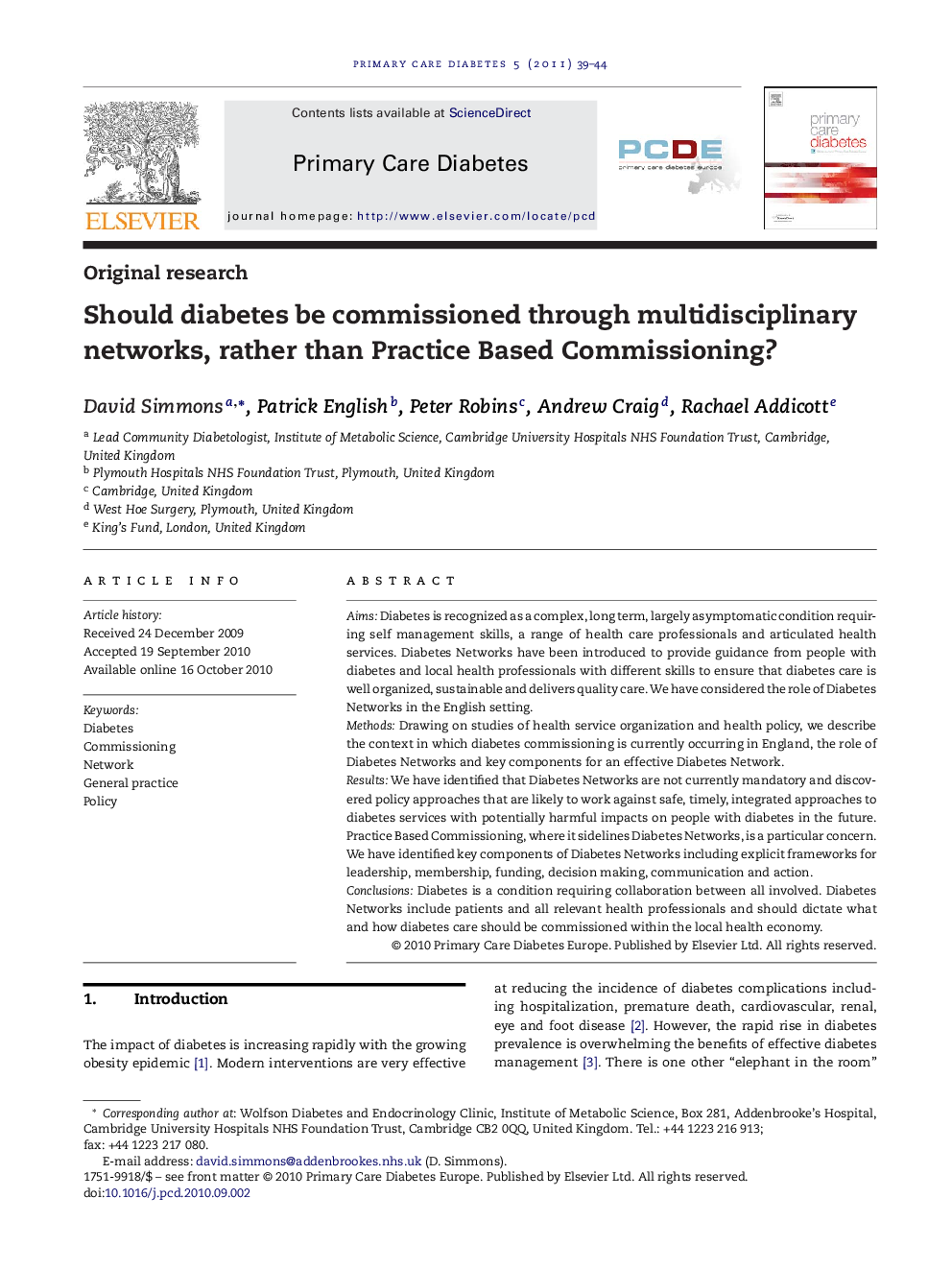| Article ID | Journal | Published Year | Pages | File Type |
|---|---|---|---|---|
| 5871265 | Primary Care Diabetes | 2011 | 6 Pages |
AimsDiabetes is recognized as a complex, long term, largely asymptomatic condition requiring self management skills, a range of health care professionals and articulated health services. Diabetes Networks have been introduced to provide guidance from people with diabetes and local health professionals with different skills to ensure that diabetes care is well organized, sustainable and delivers quality care. We have considered the role of Diabetes Networks in the English setting.MethodsDrawing on studies of health service organization and health policy, we describe the context in which diabetes commissioning is currently occurring in England, the role of Diabetes Networks and key components for an effective Diabetes Network.ResultsWe have identified that Diabetes Networks are not currently mandatory and discovered policy approaches that are likely to work against safe, timely, integrated approaches to diabetes services with potentially harmful impacts on people with diabetes in the future. Practice Based Commissioning, where it sidelines Diabetes Networks, is a particular concern. We have identified key components of Diabetes Networks including explicit frameworks for leadership, membership, funding, decision making, communication and action.ConclusionsDiabetes is a condition requiring collaboration between all involved. Diabetes Networks include patients and all relevant health professionals and should dictate what and how diabetes care should be commissioned within the local health economy.
